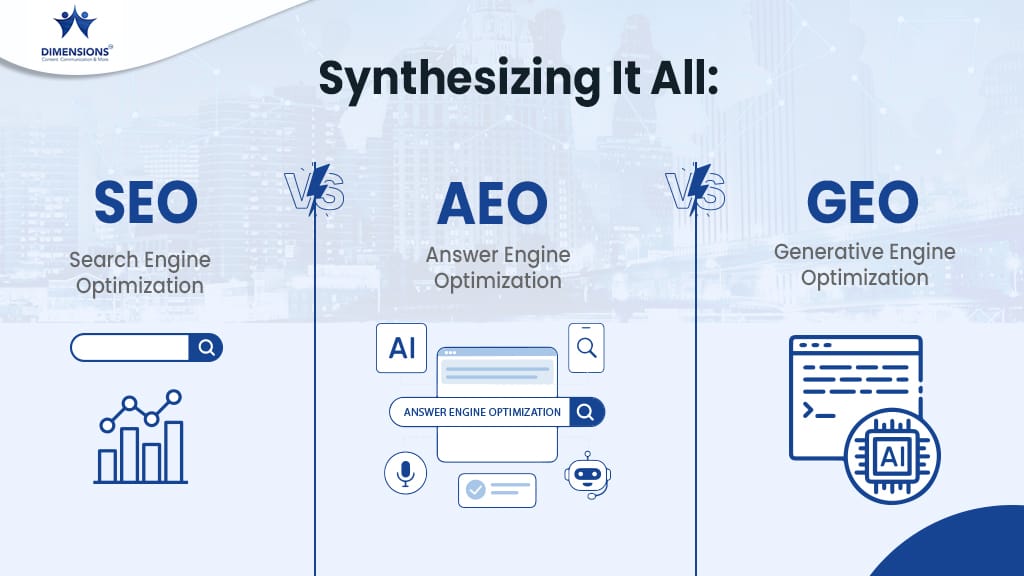The Story of Paytm, Nykaa and Zomato
Beyond all the hype, when the dust settles, all that will remain are the success stories of new-age Indian companies. We have all been hearing about the eventful IPOs of some of the universally-loved companies of India. Their success is like that iceberg- we can only see the tip. The stories of the dedication, hard work and even setbacks of the founders of these companies remain largely buried deep, unheard, unseen. This article will reveal the inspiring stories of these founders- what it took for them to helm their beloved companies to the path of success and growth.

The Story of Paytm: A Sharma Ji Ka Beta Who Dared To Think Different
Back in the 90s, there was this aspirational India that was thinking big. But then there were another set of Indians coming from tier 2 and 3 cities. They read in Hindi Medium schools; they just wanted to survive.
It is in one of these tier 2 cities, Aligarh, where a boy was born in 1978. The boy’s life was overshadowed by the typical difficulties that a Middle-Class family faces. The boy learnt how to survive. The boy became street smart. He learnt from early on that a bus in India never stops at the bus stand. A bus full of passengers would stop before it reached the bus stand so that people could disembark and so space could be freed. He saw poverty and was aware of the value of money from childhood. There were days when all this boy did for earning was to fix the internet connection of business people and media persons and would earn less than 500 Rupees per gig.
This boy came from a traditional family. His father was a school teacher. All he would see was, his elders were either trying to be doctors or teachers or engineers. The boy, too, was quite meritorious. He passed the class 12 exam when he was just 14. Just like other “Sharma ji ka beta,” this boy too enrolled in an engineering college in Delhi.
The prodigious child from Aligarh, who passed the HS exam when he was just 14, became an average student in Delhi College of Engineering. Why? Because aspirational India demanded people speak English. And this small-town boy could just speak Hindi. Yet, this boy who dreamt of meeting Sabeer Bhatia, taking a selfie with Warren Buffet, left no stone unturned to learn English. He swallowed magazines upon magazines; he almost wanted to literally memorise the whole dictionary… The man now speaks English fluently.
This was the humble beginning of Vijay Shekhar Sharma, the founder of Paytm.
The Journey of Paytm
Paytm is not a company that came into being one fine day. It is the result of evolution. At first, the parent company- One 97 – was a text-based people search service provider. From that, they evolved into Bollywood news, cricket updates, horoscope providing platform. Then the company matured into a prepaid phone recharge platform. Ultimately it has grown into a Payment platform that is into a whole lot of other things.
Paytm started as a kind of bootstrapped startup receiving petty funding from Sharma’s friends and family (Most notably, Piyush Aggarwal). There was a time when Freecharge wanted to buy Paytm! Gradually Paytm started becoming viable. Jack Ma and Saif Partners were the first big investors to have faith in Paytm’s vision. The company received a total of $200 Million from these two investors. Then came Softbank. All these milestones were crossed only because Vijay Shekhar Sharma and his team kept on evolving. Sharma can see 3 years ahead of him. In a 2017 interview with NDTV, Vijay mentioned that it would take 3 years for Paytm to launch an IPO. And exactly 3 years later, Paytm became public. Such is the vision of Sharma. In the same interview, he said that the Fintech market is evolving at an unprecedented pace and what Paytm was doing then won’t even matter after 5 years. Today, we are seeing just that. These days, youngsters use Paytm not just as a primary wallet service but as an investment platform, an ecommerce site and as a bank!
Today Paytm is a brand name to reckon with. Yes, it still has a long way to go before it becomes a profit-making company. Yes, its shares sank 27% on the first day of IPO. But as Vijay Shekhar Sharma said, “No investor comes for a day.” Paytm has its eye on the long term horizon. Today, no matter which shop you visit, you’ll see a Paytm QR code. Today, lakh upon lakhs of investors are investing through Paytm in Mutual Funds and stocks. And, unlike other ecommerce, Paytm has no proxy seller that works for Paytm itself. This makes Paytm one of the most transparent ecommerce sites in India. In the long run, Paytm is going to be the Rakuten and Amazon of India.
The Story of Nykaa: Coming Out of The Comfort Zone
“As you set out for Ithaka
Hope your road is a long one,
Full of adventure, full of discovery.”
There’s a lady who worked as an investment banker in Kotak Mahindra. She was literally earning in six figures. An extremely successful banker, she became the MD of Kotak Mahindra Group in 2005 after working for 19 years in the same company. During an illustrious career in Kotak Mahindra, Falguni became an expert in doing successful IPOs for reputed companies. She was the one to lead the blockbuster IPO of Coal India, whose record Paytm sought to surpass. Who imagined that one day she would be launching the IPO of her own company?
Ask yourself, can you gather the courage of leaving the position of Managing Director in a bluechip bank? How intense should the bug of adventure and courage bite one to take such a decision? Falguni Nayar had that courage. One fine day, her daughter recited the line of the poem Ithaka that we quoted above. It charged up Falguni’s dream of starting something of her own. And that was the start of Nykaa, the Sephora of India.
The Journey of Nykaa
Falguni Nayar left Kotak in 2012. That year in April, Nykaa came into being. It was a time when ecommerce sites were in their nascent stages, and beauty items were the last ones to be focused on. Within just 7 years, Nykaa became a valuable brand. The credit for this goes to Nayar. She has always maintained that women should dress and look beautiful not for others (read men) but for themselves. The product placement, the promotions- everything remains in line with her philosophy. Even though Nykaa started small, its popularity soared soon. Falguni didn’t have to struggle much to get funding. In March, Nykaa secured funding of 13 Million dollars which made its valuation skyrocket to $1.1 billion. And thus, Nykaa became the first unicorn startup headed by a woman.
The IPO of Nykaa filled the pockets of initial investors with a lot of cash. The issue price was Rs. 1125, but the stock price went as high as 2205 on Day 1. Yet, beyond all the glitz, Falguni Nayar, the judicious CEO of Nykaa, is not in the mood to rejoice too soon. She tells her investors to wait for the compounding effect to show its true magic. A woman of long term vision, Falguni is sure to elevate Nykaa to new heights.
The Story of Zomato: The Inspiration For All Introverts Out There
Across the internet, if you search for the story of Zomato, you’ll come across articles that talk about the phenomenal success of Deepender Goyal along with Pankaj Chaddah. What they fail to mention is the fact that Deepender is an extremely introverted, camera-shy person. Yet, he is running one of the hugely popular organisations that youths of India depend on, on a day to day basis. If you follow Deepender’s interviews on various platforms, the first thing that you’ll see is his no-filter smile. Along with that, you can surely not miss how this man has risen above introversion to win the hearts of the interviewers and audience.
So how did it all start?
Deepender Goyal took birth in Punjab in 1983. A meritorious student, Goyal enrolled in IIT Delhi and graduated in Mathematics and Computing. The next year- in 2006, he joined Bain & Co. It was during his job there at Bain that Deepender noticed that people would stand in long queues just to look at the menu card and order food manually. It was a spectacular waste of time and productivity. So, as a hobby, Goyal and his friend Pankaj Chaddah built an intranet website that would enable employees of Bain to order food from the cafeteria without standing in any line. The menu card was uploaded to the website. So his colleagues could then order food from their desks. The website was named foodiebay.com (which, now, redirects to zomato.com). This was the start of something big.
The Journey of Zomato
Goyal and Chaddah saw that the foodiebay website was an instant hit. Employees across the company would log in to the website more than once a day. This gave them the idea of scaling this thing up. And this is how Foodiebay opened to the public in 2008. The entire business started as a menu card scanning platform! Eventually, the platform gained traction. It was upgraded so people could order food from the platform itself. In 2011, the platform was renamed Zomato.
Today, Zomato has become synonymous with food delivery. People in India don’t say, “I bought this food from ### restaurant.” What they say is,” I bought this food from Zomato”, even though it is the restaurant that serves the food. As of November 2021, it has crossed 100M downloads on PlayStore.
From way back in 2010, Zomato has been receiving investments from reputed companies and venture capital firms. Info Edge India (the company behind Naukri) invested more than US $20 million in Zomato. Sequoia Capital- the US based venture capital firm too has a stake in Zomato. The ambition of Zomato and its founder Deepender Goyal is enviable. Zomato is now expanding worldwide. It has already started its operations in Sri Lanka, UAE, Qatar, the UK, the Philippines, South Africa, the U.S, Canada, Portugal, Turkey, Brazil, Indonesia, Lebanon and Ireland. As Indians, we feel proud to see an Indian company getting a foothold in many different countries.
In July 2021, Zomato launched its IPO. It was a hit among the investing community. The offering was subscribed to more than 38.25x. Lakhs and lakhs of Indian youth wanted a part of Zomato. Those who ultimately were able to subscribe considered themselves lucky. Such is the love for Zomato in India. And the stock is performing quite well. From 126 in July, it has now increased to 153 INR. The outlook remains strong.
We wish Zomato to keep on filling the stomachs and purses of people!
It is heartening to see new-age entrepreneurs emerging as the future business leaders. These people don’t have any business background. They are where they are now purely because of their skill and hard work. Hence the success of Falguni, Vijay and Deepender- give hope to the masses- the hope that they can make it big despite having any prior connection in the industry. That’s where the true value of these IPOs lies.





